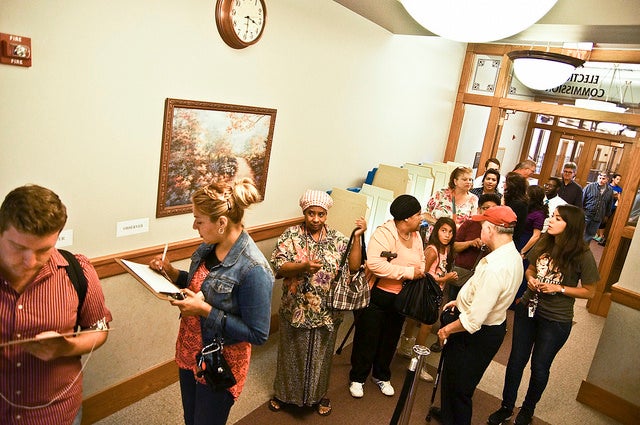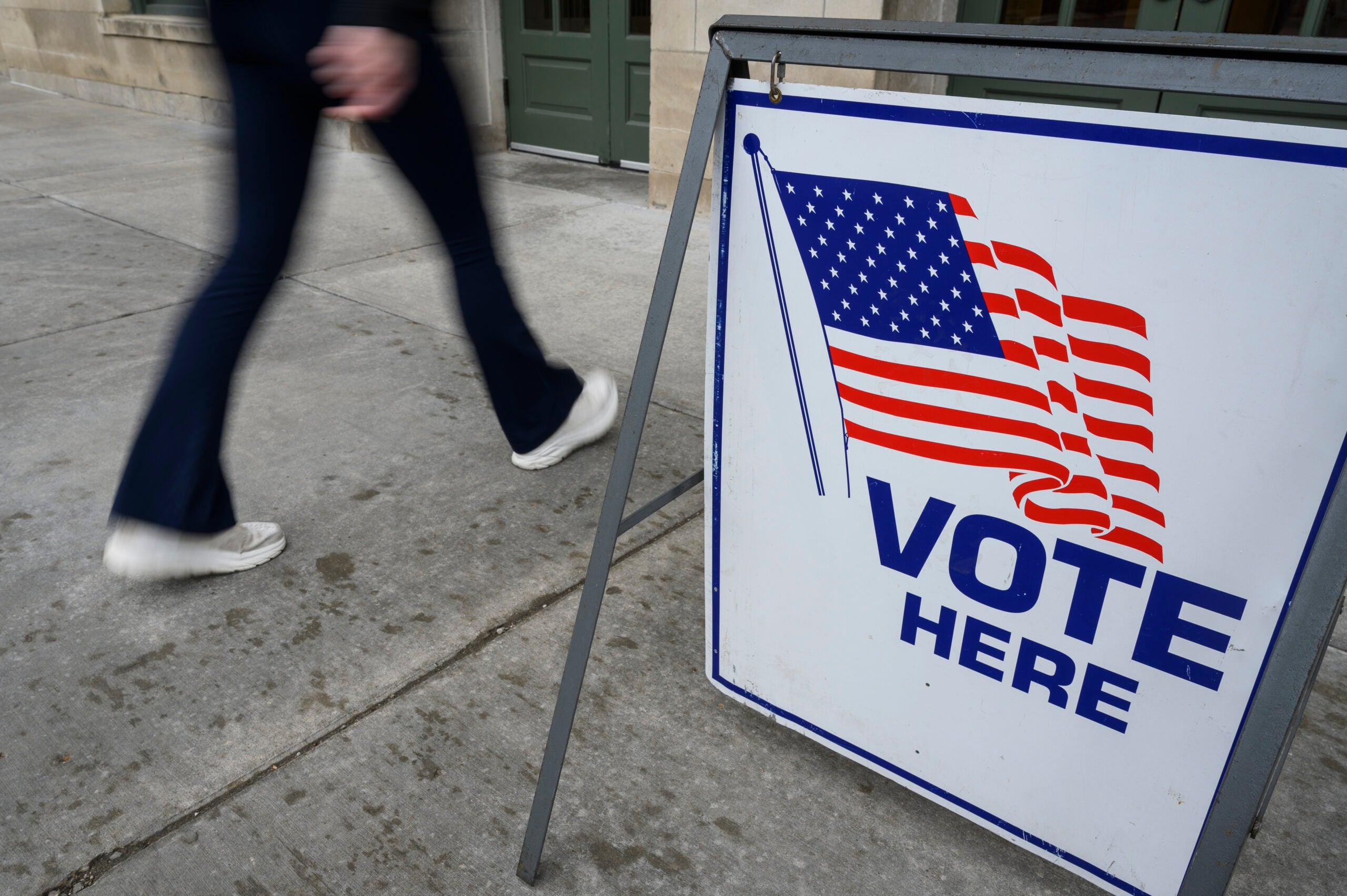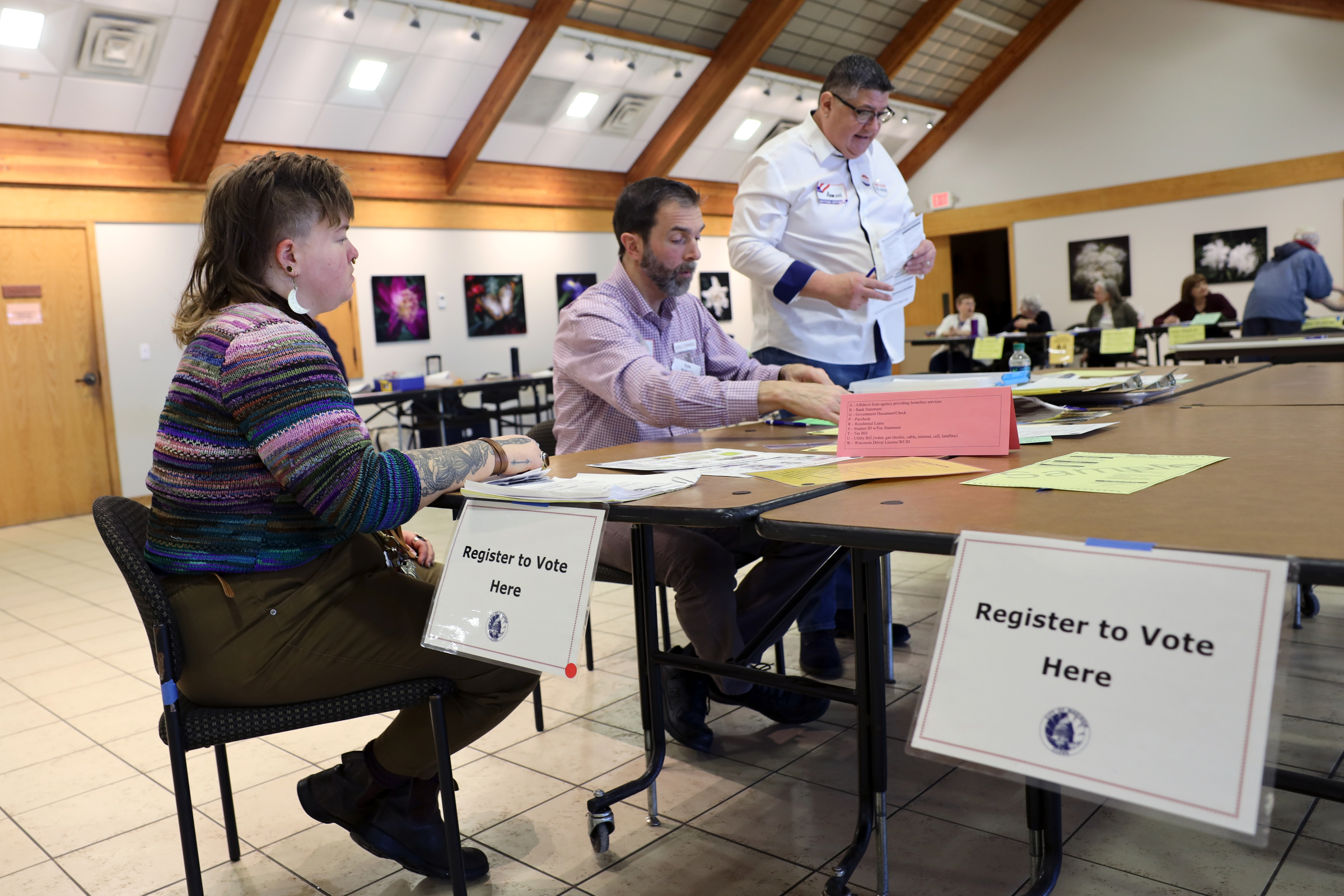As of three weeks ago, it looked as though Wisconsin voters would likely be required to show identification in order to submit a ballot. But now that the U.S. Supreme Court has blocked the state’s voter ID law, things have changed drastically.
Here’s what voters now need to know in order to vote in the upcoming election:
Will I need an ID to vote?
Stay informed on the latest news
Sign up for WPR’s email newsletter.
No, at least not for this election. That not only means people can leave behind ID when visiting the polls: It also means a photocopy of an ID is no longer necessary when submitting an absentee ballot.
That said, Wisconsin’s law is blocked only temporary, so while ID isn’t necessary for now it may be required in future elections.
However, while you don’t need an ID to vote, it may be a good idea to bring one along if you still need to register to vote.
So what exactly do I need in order to register to vote?
Basically, bring some kind of “proof of residency” when registering to vote — something you can still do at a municipal clerk’s office before this Friday, or when going to the polls on Election Day.
The simplest form of such proof is an up-to-date, unexpired driver’s license or state ID. Those without such an ID will need to provide the last four digits of their Social Security number and another form of proof of residency. (Those who can’t provide any of these will have to vote using a provisional ballot.)
Any of the following documents work as proof of residency, either as a hard copy or in electronic form, when provided along with the last four digits of a Social Security number:
- Bank statement
- Real estate tax bill
- Paycheck
- Utility bill
- Lease for the period including Election Day
- A college ID card
- A check from the government
- A workplace ID card
- A government issued license or document (this encompasses a wide range of things, from BadgerCare notices to student loan correspondences).
- An affadavit indicating that a person is homeless.
Note: You can’t mail in your registration, since that deadline has passed. Also, Wisconsin does not allow online registration.
I’ve moved recently. Does that matter?
Yes. It mean’s you’ll basically have to re-register to vote in order to update that old information. Plan on bringing any of those documents described above to the polls or a municipal clerk’s office.
There is one caveat here: People who have lived less than 28 consecutive days at a new home address cannot legally vote from that address, and should go to the polling place associated with their old address.
For those who own multiple residences, you need to be registered at the home that’s considered the “primary” address.
Can I still vote absentee, or vote early?
Yes to both.
In-person absentee voting, also known as early voting, is still going on now through Friday at municipal clerk’s offices. The hours when those offices are open may vary — check out information on your local office here.
It’s also still entirely possible to mail in an absentee ballot — so long as the envelope is postmarked on or before Election Day, and is received by the clerk by 5 p.m. next Friday. (Those post-Tuesday stragglers will be accepted, though it’s likely that the races and referenda on the ballot will have been decided by then.)
In addition, people can still apply to receive an absentee ballot by filling out this form and emailing or faxing it to a municipal clerk. The form must be received by this Thursday at 5 p.m.
I’m in college/a member of the military/living overseas. Is there anything I need to know?
For people who are permanently living overseas or who are members of the military, special rules regarding voting and registration apply.
For people who are living temporarily overseas and intend to return to Wisconsin, apply with an absentee ballot using the normal rules.
For college students, there are no exceptions to the rules — so long as a you’re a person who has lived at a Wisconsin address for at least 28 days (and of course, so long as you’re a U.S. citizen and above 18), you can vote regardless of student status.
For voters who want more information, the Wisconsin Government Accountability Board oversees elections and provides resources for residents on its website and at My Vote Wisconsin. To get news on state races and to see who’s on the ballot, check out Wisconsin Vote as well.
Wisconsin Public Radio, © Copyright 2024, Board of Regents of the University of Wisconsin System and Wisconsin Educational Communications Board.





